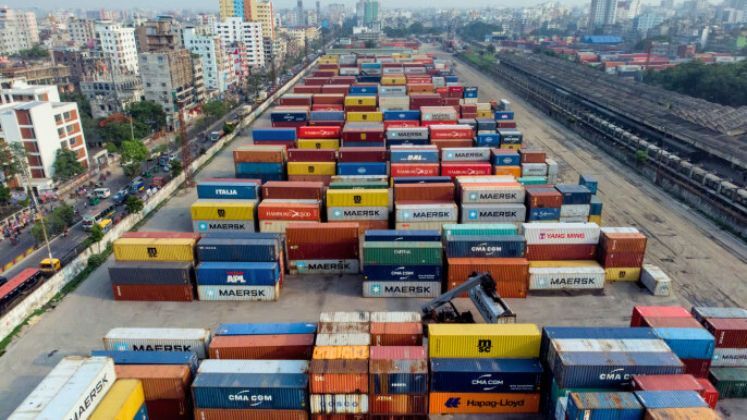
In a significant move to enhance logistical efficiency and attract greater foreign direct investment (FDI), the White Paper Committee has proposed the establishment of Inland Container Depots (ICDs) within Economic Zones (EZs). The final draft of the document was submitted to the chief adviser (CA) of the interim government on 1st December 2024.
The committee highlighted that cumbersome customs procedures and frequent mismatches in HS code within the Import General Manifest (IGM) contribute to delays in the import process. “Operational efficiency is further obstructed by the non-availability of essential service status for customs clearance and the lack of Key Performance Indicators (KPIs) for key ports such as Chittagong and Dhaka airports,” the White Paper stated.
The report also underscored the challenges faced by investors, particularly in the ready-made garment (RMG) sector, which is a cornerstone of the country’s economy. Issues such as congestion at Chittagong Port, insufficient storage capacity in Export Processing Zones (EPZs), and additional costs due to the inability to reuse import containers are severely impacting the industry’s competitiveness.
The White Paper emphasised that the rigid categorisation between export-oriented and domestic enterprises limits opportunities for foreign direct investment aimed at serving both markets. To address these challenges, the committee advocates for the introduction of bonded storage facilities, as well as permitting container round use in Economic Zones (EZs) and expanding this practice in ICDs.
These recommendations may significantly benefit the RMG sector by streamlining supply chain operations, reducing logistical costs, and facilitating quicker access to raw materials. By improving the operational framework, the White Paper aims to create a more conducive environment for both local and foreign investors, ultimately strengthening the RMG industry and boosting economic growth.
The establishment of ICDs in EZs is expected to enhance the overall efficiency of the supply chain, making it easier for RMG manufacturers to manage their inventory and adhere to delivery timelines. As the sector continues to strive for global competitiveness, these changes could prove vital in solidifying Bangladesh’s position as a leading player in the international garment market.






